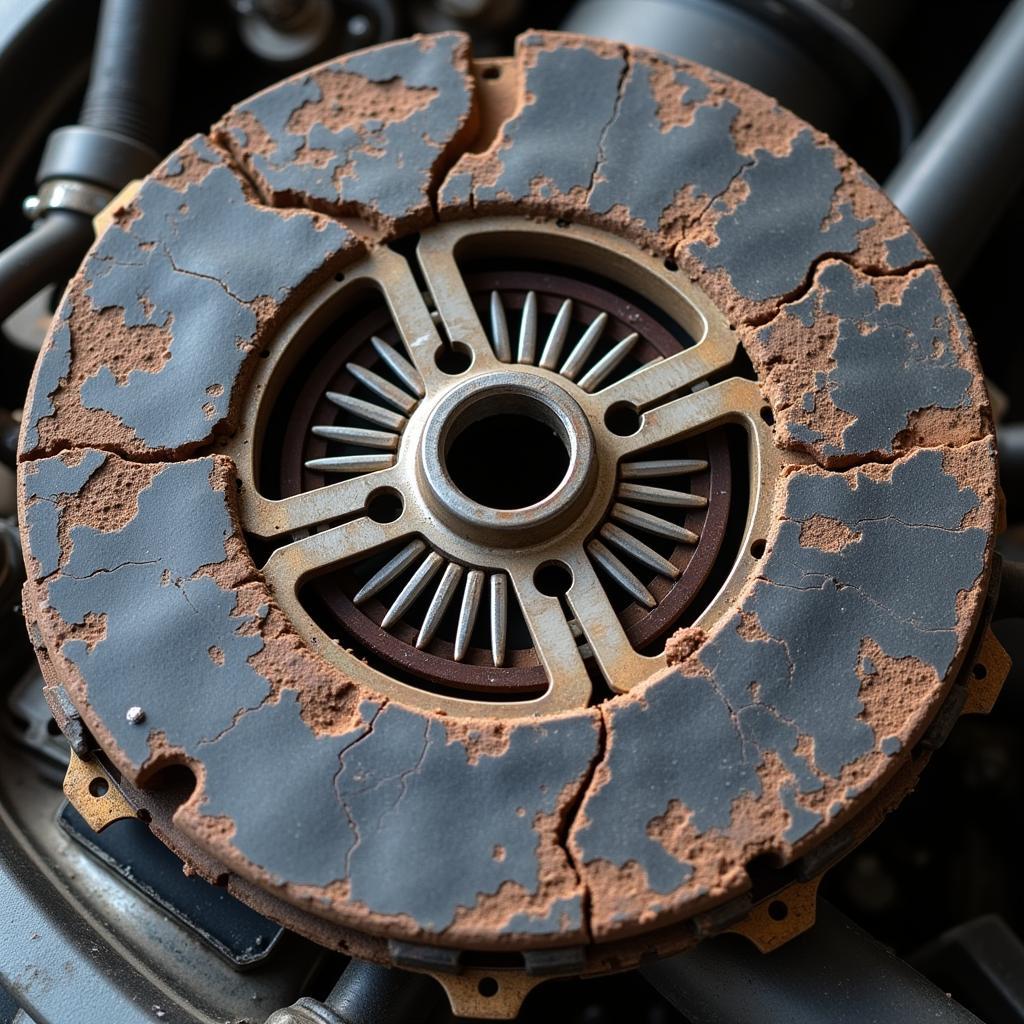Diesel Car Clutch Problems can be a real headache, impacting your vehicle’s performance and leaving you stranded. This guide provides in-depth information on diagnosing, troubleshooting, and resolving these issues, whether you’re a car owner, mechanic, or technician.
Understanding the intricate workings of a diesel clutch system is crucial for effective troubleshooting. A diesel clutch system, unlike its petrol counterpart, often handles higher torque, leading to unique wear and tear patterns. This guide delves into the common problems, their causes, and effective solutions. Let’s explore how to keep your diesel vehicle running smoothly. What are the most common issues, you ask? Keep reading to find out.
Common Diesel Car Clutch Problems and Their Causes
Several factors contribute to diesel car clutch problems. Recognizing these can help you pinpoint the root cause.
- Slipping Clutch: A slipping clutch is characterized by the engine revving without a corresponding increase in vehicle speed. This often occurs due to worn clutch plates, a leaking slave cylinder, or an improperly adjusted clutch cable. If you experience this while driving a car with flywheel problems, it could signify a more serious issue.
- Hard Clutch Pedal: A hard clutch pedal can make shifting gears difficult and tiring. This could indicate issues with the clutch cable, release bearing, or pressure plate.
- Clutch Judder: A juddering clutch can create a shaking sensation when engaging the clutch. This is often caused by warped or contaminated clutch plates or a worn flywheel.
 Worn Clutch Plate in a Diesel Car
Worn Clutch Plate in a Diesel Car
driving a car with flywheel problems
- Burning Smell: A burning smell indicates excessive friction within the clutch system, typically due to a slipping clutch. This should be addressed immediately to prevent further damage.
- Grinding Noise: A grinding noise when engaging the clutch suggests a problem with the release bearing or pilot bearing.
Troubleshooting and Repairing Diesel Car Clutch Problems
Addressing diesel car clutch problems requires a systematic approach. Here’s a step-by-step guide to help you troubleshoot and repair common issues:
- Inspect the Clutch Cable: If your vehicle has a clutch cable, check for fraying, kinks, or improper adjustment. A damaged or improperly adjusted cable can cause a hard clutch pedal or clutch slippage.
- Check the Hydraulic System: For hydraulic clutch systems, examine the master and slave cylinders for leaks or low fluid levels. A malfunctioning hydraulic system can also lead to clutch problems.
- Inspect the Clutch Plates: Worn or damaged clutch plates are a frequent cause of clutch problems.
- Examine the Flywheel: A warped or damaged flywheel can contribute to clutch judder and slippage.
- Check the Release Bearing: A worn or damaged release bearing can cause grinding noises or difficulty disengaging the clutch.
- Adjust the Clutch: Sometimes, a simple clutch adjustment can resolve the issue. Refer to your vehicle’s service manual for the correct adjustment procedure.
“A thorough inspection is crucial for accurately diagnosing diesel clutch problems. Don’t overlook the small details,” advises John Miller, a seasoned automotive engineer with over 20 years of experience.
Preventing Diesel Car Clutch Problems
Preventing clutch problems is always better than dealing with repairs. Here are some tips to extend the life of your diesel clutch:
- Avoid Riding the Clutch: Resting your foot on the clutch pedal while driving can cause premature wear.
- Shift Smoothly: Avoid aggressive shifting and ensure proper gear selection. Smooth gear changes minimize stress on the clutch system.
- Maintain Proper Fluid Levels: Regularly check and maintain the hydraulic fluid level in the clutch system (if applicable).
- Address Issues Promptly: If you notice any signs of clutch problems, address them immediately to prevent further damage.
“Preventive maintenance is key to avoiding costly clutch repairs. Regular checks and mindful driving habits can significantly extend the life of your clutch,” adds Sarah Chen, a certified mechanic specializing in diesel vehicles.
Conclusion
Diesel car clutch problems, while common, can be effectively addressed with proper diagnosis and repair. This guide has provided a comprehensive overview of common issues, their causes, and solutions. By understanding these issues and adopting preventative maintenance practices, you can ensure smooth and reliable performance from your diesel vehicle. If you’re still experiencing problems, don’t hesitate to contact us at AutoTipPro for expert assistance. You can reach us at +1 (641) 206-8880 or visit our office at 500 N St Mary’s St, San Antonio, TX 78205, United States.






Leave a Reply